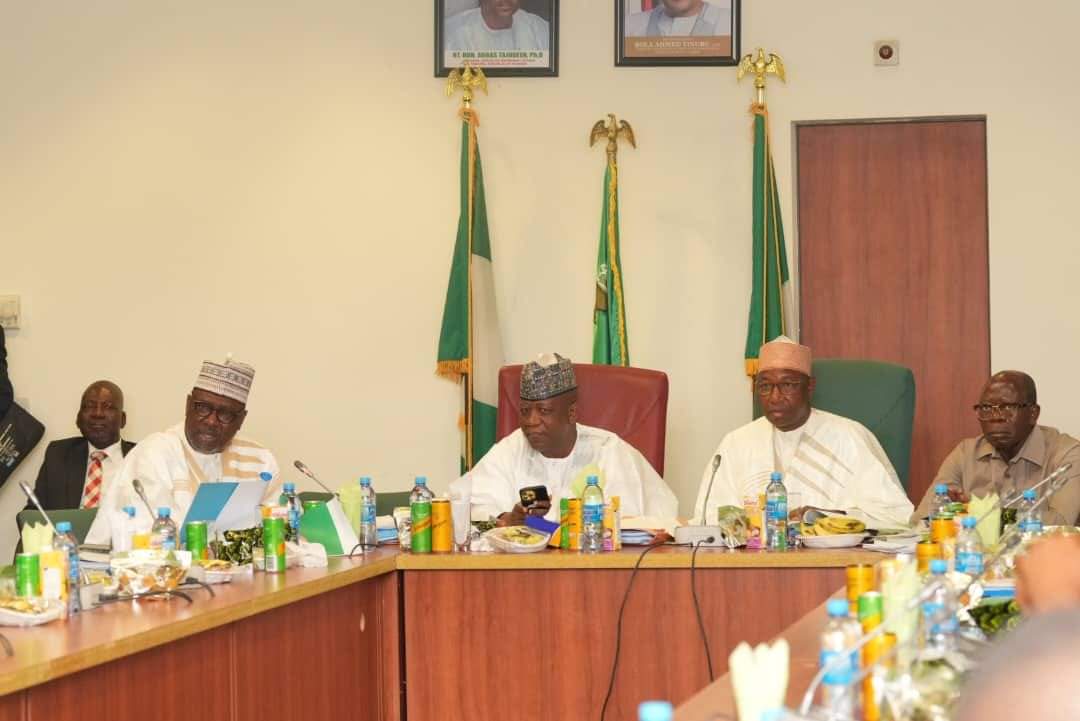NASS joint c'ttee seeks water sector reforms for food security, jobs

The Joint Senate and the House Representatives Joint Committee on Water Resources has called for reforms in the water sector, saying it has the potential of creating food security and other socio-economic benefits for Nigeria.
The Joint Committee, co-chaired by Senator Abdulaziz Yari and Hon. Sada Soli, made the call at a budget defence session in Abuja on Tuesday.
Appearing before the committee to defend the proposed estimates of the Federal Ministry of Water Resources and Sanitation in the 2024 Appropriation Bill were the Minister of Water Resources, Engr. (Prof.) Joseph Terlumun Utsev; and the Minister of State, Water Resources, Mr Bello Muhammad Goronyo, Esq.
The Chairman, Senate Committee on Water Resources, Senator Abdulaziz Yari, in his opening address, noted that the mandate of the ministry and its allied agencies were very strategic to the socio-economic, food security and sustainable development of Nigeria.
Senator Yari added that the ministry's national strategic importance in the areas of providing sustainable access to safe and sufficient water for Nigerians, efficient water resources management, irrigation development, sustainable agriculture, hydropower generation, national food security, flood prevention and control, and promotion of healthy and hygienic well-being of Nigerians, cannot be over emphasised.
He said: “For us in the National Assembly, particularly members of this committee, we believe that this is the time for the comprehensive reform and paradigm shift in the National Policy and Action Plan on Water Resources Management and Administration in Nigeria.
“The water resources sector and value-chain embody huge potential for the rapid socioeconomic development of Nigeria.
“This is because the water resources sector, if properly harnessed and administered, has great positive implications for high food productivity and security, poverty reduction, improved hygiene and healthy living, enhanced access to drinking and safe water, as well as, integrated model farms and irrigation development, employment generation, and environmental sanitation, power supply and revenue generation.”
The chairman, however, decried that despite these recognisable huge socio-economic benefits and potential of the water resources sector, “devastating flooding and erosion have for years impacted negatively on the livelihood of Nigerians.”
Senator Yari stated: “Today, flooding has become the most serious and most frequent natural disaster threatening communities, livelihoods, and infrastructure across the nation. Poor land use, planning and inadequate storm water management elevate flood risks, especially in Lagos, Benue and and Kogi States, among others, which is worsened by emerging climatic factors.
“Accordingly, the committee strongly believes that this issue is of critical national importance that requires both legislative intervention and stimulation of multi-stakeholders’ commitment to addressing the issues and would soon conduct a public hearing to examine the recurring issue of flood-induced damages caused by the willful release of Water from the Lagdo Dam in Cameroon.
“Similarly, part of the significant legislative policy priority of the committee is to ensure robust oversight, collaboration and partnerships for the development of Nigeria. To achieve this goal, the committee has tentatively drawn a schedule of timetables to enable members to visit all the river-basins, agencies, and locations of the capital projects implemented or being executed under the ministry's purview in the eventual 2024 Appropriation Act.”
On the proposed 2024 budget estimates, the chairman disclosed that the committee had analysed various aspects of the proposal and “have observed that there is a need for some adjustments in the estimates in the interest of the nation.”
“Of the over 400 capital projects tracked in the ministry's headquarters allocations, about 59 per cent were ongoing projects while 41 per cent were new projects. Also, about N15billion worth of new capital allocations were tied to loans.
“The ministry’s estimates have no records of aids and grants; no revenue forecasts were projected for the entire ministry and several capital provisions didn't have clear project locations. These and more are critical issues that need to be clarified and adjusted,” Senator Yari stated.
Meanwhile, Utsev, in his presentation to the committee, appraised the budgetary performance of the ministry in the outgoing 2023 fiscal year and explained the proposals made for 2024.
“It is my firm believe that the committees are fully aware of our mandate as a ministry and, therefore, appreciates your continuous and unflinching support over the years towards the ministry's contribution to irrigated agriculture, in support of Mr. President's agenda on food security and Federal Government's drive of lifting millions of Nigerians out of poverty,” the minister said.
Utsev also said the parliament could further support the ministry’s efforts at construction of dams with varying water impoundment capacities to mitigate drought and flooding incidences, as well as hydropower generation and sustenance of the environment.
He said: “When I assumed as minister, I immediately carried out a familiarisation tour of the 12 River Basin Development Authorities and agencies under the supervision of the ministry, to get a first-hand information. And in the course of my interaction with them, I specifically directed the creation of employment for our teeming unemployed youths through the continuous creation of a budget line for Youth Empowerment Scheme to further consolidate the Songhai Model Farm.”
The minister recalled the ministry’s effort in the area of sanitation and hygiene through the ‘Clean Nigeria, Use the Toilet’ campaign nationwide. “We want to sustain the tempo through your assistance and cooperation. The campaign, however, needs to be sustained with adequate funding in order to achieve the objective of an open defecation-free nation by 2025, which is the target for the programme,” he added.
Utsev also said the ministry, in FY 2024, is to “aggressively” embark on constructions/rehabilitation of dams, provisions of rural access roads to integrated farmlands, as well as rehabilitations of water schemes nationwide.
“These are basically the new projects to be pursued in the coming years in the ministry. We, therefore, need your collaborative support in this direction,” the minister noted.

